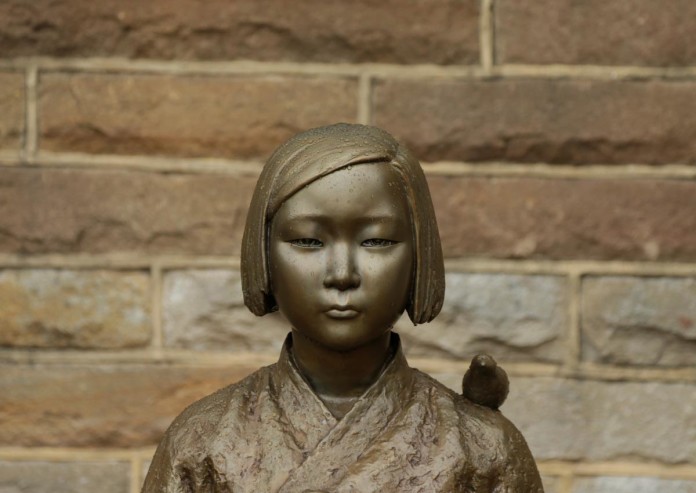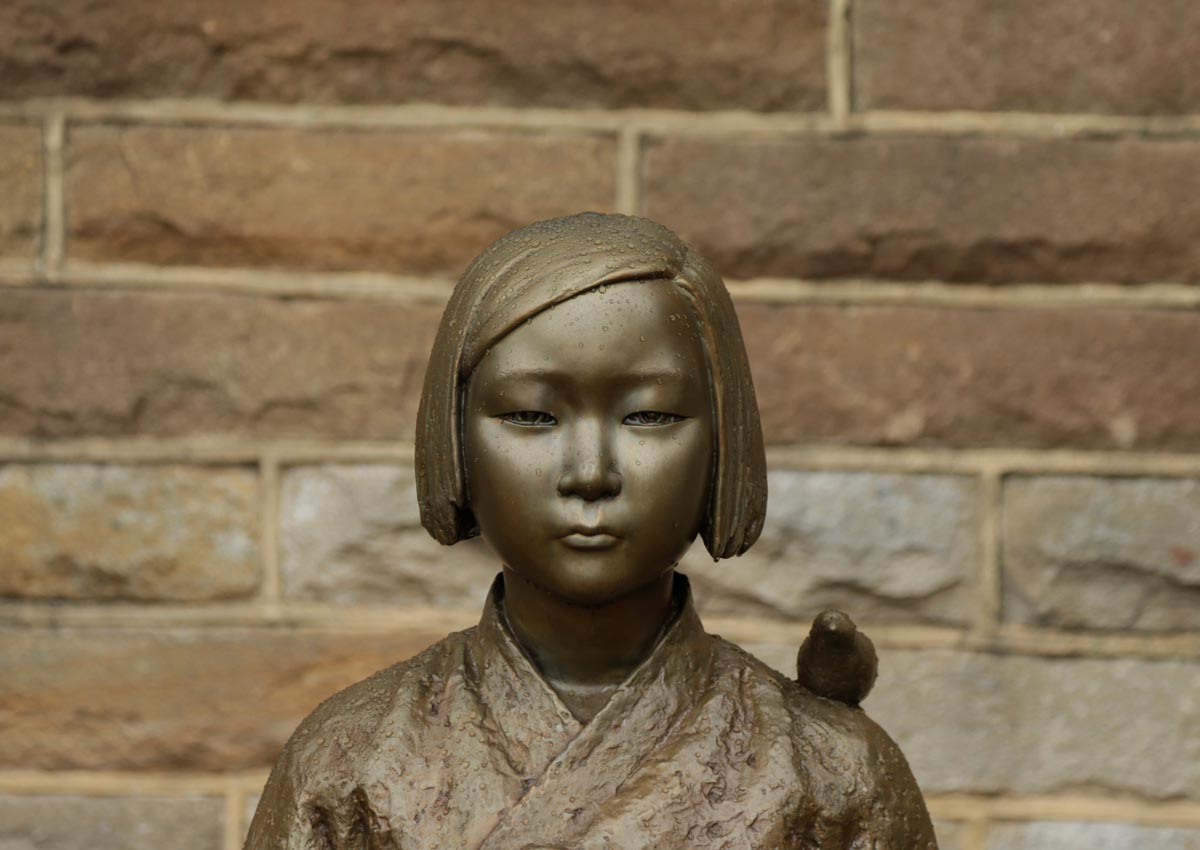
SEOUL –
Southern Port of Busan on Friday said it would allow activists to place a statue of a victim of Japanese wartime sex slaves outside the city’s Japanese consulate.
The municipality had previously removed the “comfort women” statue, but changed the track, the Japanese hawk defense minister in Tokyo, a controversial war temple to pray.
Thursday visited the Yasukuni Shrine, where millions of most of the Japanese war died, but also were convicted of war crimes by senior military and political figures swiftly whipping from China and South Korea.
Activists put their statues outside the consulate on Wednesday – marking their opposition to the agreement reached between South Korea and Japan a year ago and finally solving the comfort women issue.
Under the agreement, the two countries described as “final and irreversible,” Japan apologized to the surviving Korean comfort women and billions of yen (12.4 million Singapore dollars).
Critics say the deal did not go far enough for Japan to be responsible for its misuse of war.
The statue – a copy of the road sitting in the embassy from Seoul in Japan – was quickly removed from the authorities’ Busan consulate.
But after Inada’s visit sparked public anger, they said it would return to activists.
“We will not prevent civic groups from building statues there, if they want to do it,” Yonhap news agency quoted Sam Seok, a local officials park.
The statue in Seoul – a young, seated woman with a birdie on her shoulders bronze – has proven to be a very effective and popular symbol.
Japan says it should be removed after the signing of the Comfort Women’s Agreement, but Seoul claims it only agrees to investigate the possibility of moving it.
In the past year, activists have maintained a 24-hour vigil to prevent statues from being taken away.
More than 20 similar monuments have been built around Korea, with more than a dozen in the United States, Canada and elsewhere.





